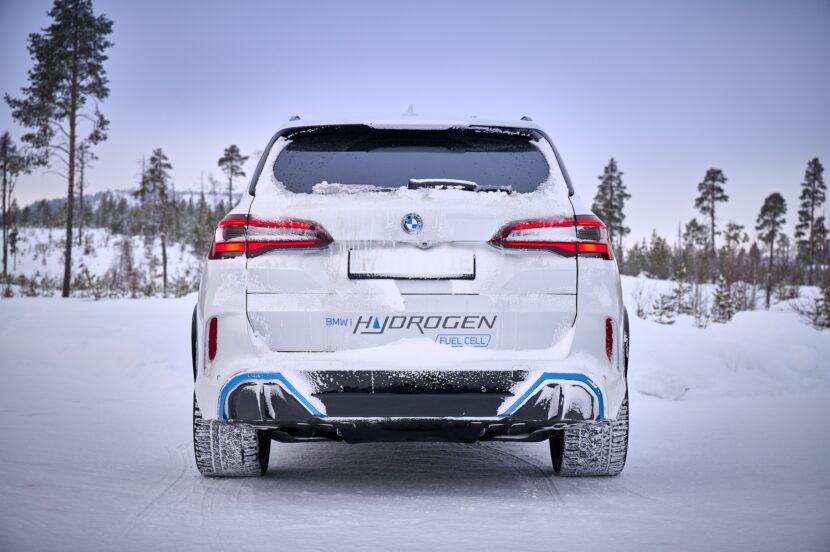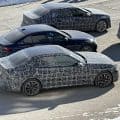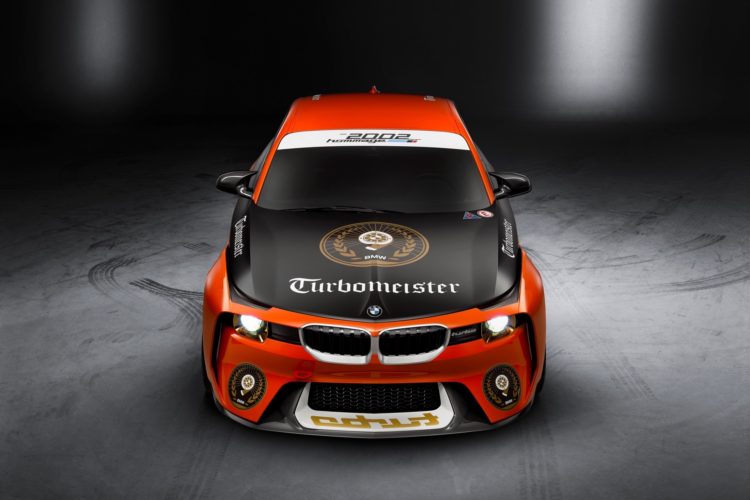In a roundtable hosted earlier today in NYC by BMW, Pieter Nota, board member responsible for sales and marketing, spoke at length about the company’s continues involvement in the field of fuel cell hydrogen drivetrains. Nota mentioned the BMW iX5 Hydrogen prototypes which are preparing for a market launch in 2023.
BMW iX5 Hydrogen
While the iX5 Hydrogen won’t be mass produced, at least initially, a fleet of cars will be made available to selected customers, media and VIPs. There is no word on how many BMW iX FCEV units will be put on the road next year. The idea behind the fuel cell hydrogen development remains the same: offering customers a choice of emission-free vehicles.

While most developed markets are able to handle the influx of battery-powered electric vehicles, not every customer and market will be ready to fully adopt them. This is where the FCEV BMWs come in. First previewed in the BMW X5, the technology could be essentially used in other large-form BMW models.
With a refill time of 3 to 5 minutes, the BMW iX5 Hydrogen could serve as a great alternative for customers looking to drive emission-free without worrying about the charging infrastructure. Of course, hydrogen drivetrains come with their own challenges, one of them being the infrastructure.
Second FCEV for BMW

This is BMW’s second attempt at a fuel cell electric vehicle. The first one was introduced in 2015 inside a 5 Series Gran Turismo prototype, part of another collaboration with Toyota. We had the chance to drive that FCEV prototype in Miramas, BMW’s testing facility in southern France. And more recently the BMW iX5 Hydrogen in Northern Sweden.
Built also in collaboration with Toyota, the iX5 FCEV is keeping BMW’s fuel cell program alive, as the Bavarians feel that hydrogen can be a very effective technology for long-distance vehicles in the future. Nota also mentioned that commercial fuel cell vehicles could play a major factor in the overall adoption of FCEVs.
There aren’t many traditional automakers left in the fuel cell electric vehicles space. Most of them will soon fully switch to battery-powered electric vehicles, but BMW and Toyota still believe that hydrogen will be part of our mobility future. Their bet is on the fuel cell stacks themselves becoming smaller and more efficient in the future, along with a buy-in from the heavy truck industry. The latter could be the main driver behind the adoption of FCEVs which need a solid, yet costly infrastructure in place. Longer hauls are not ideal for battery-electric trucks, despite companies like Amazon or PepsiCo turning to lighter battery-electric trucks. This is the use case where FCEVs could shine and level the playfield.




































































